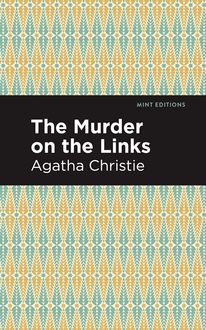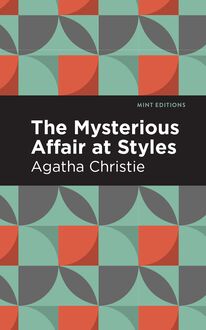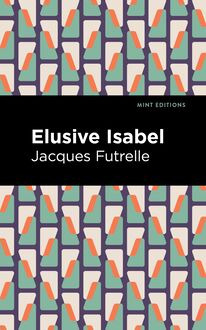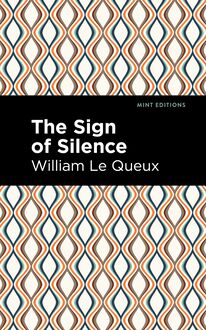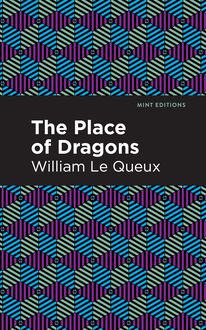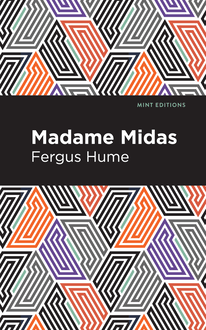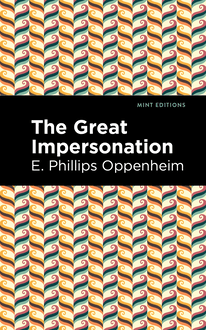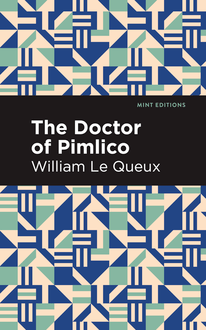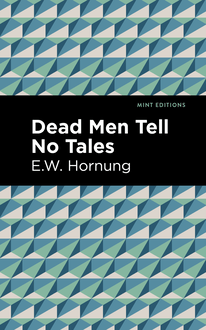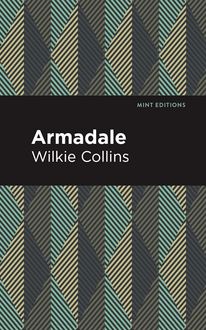-
 Univers
Univers
-
 Ebooks
Ebooks
-
 Livres audio
Livres audio
-
 Presse
Presse
-
 Podcasts
Podcasts
-
 BD
BD
-
 Documents
Documents
-
- Cours
- Révisions
- Ressources pédagogiques
- Sciences de l’éducation
- Manuels scolaires
- Langues
- Travaux de classe
- Annales de BEP
- Etudes supérieures
- Maternelle et primaire
- Fiches de lecture
- Orientation scolaire
- Méthodologie
- Corrigés de devoir
- Annales d’examens et concours
- Annales du bac
- Annales du brevet
- Rapports de stage
La lecture à portée de main
Vous pourrez modifier la taille du texte de cet ouvrage
Découvre YouScribe en t'inscrivant gratuitement
Je m'inscrisDécouvre YouScribe en t'inscrivant gratuitement
Je m'inscrisEn savoir plus
Vous pourrez modifier la taille du texte de cet ouvrage
En savoir plus

Description
When an Italian mob named The Red Hand extort the English nation, threatening to release a plague if their financial demands are not met, Professor Tillizini, a clever man, seeks to save his country by dismantling the secret society. After deciding the most efficient way to stop The Red Hand would be to reveal their secrets, particularly the identity of their leader, Tillizini begins his investigation with his friend, Antonio Festini. Though he is a talented investigator, Tillizini struggles to foil The Red Hand’s master plans of terrorism, but finds that he is a worthy match to the villainous organization’s wit and brawn. As the threat of a severe biological weapon weighs heavily over England, the professor continues his unorthodox method of fighting crime, searching for true identities, uncovering gripping drama, and eventually making a shocking discovery that hits very close to home. With betrayals, twists, family drama, and action, Edgar Wallace’s The Fourth Plague appeals to modern audiences and demands full attention. Filled with drama, mystery, and suspense, The Fourth Plague depicts an unconventional hero as he attempts to soil the nefarious plots of an Italian mob. The Fourth Plague was among Wallace’s earliest attempts at crime fiction, his second most popular genre. Despite being first published over one-hundred years ago in 1913, this captivating thriller feels fresh and contemporary, timeless with an exciting plot and compelling characters. This edition of The Fourth Plague by Edgar Wallace now features an eye-catching new cover design and is printed in a font that is both modern and readable. With these accommodations, this edition of The Fourth Plague creates an accessible and pleasant reading experience for modern audiences while restoring the original suspense and genius of Edgar Wallace’s work.
Sujets
Informations
| Publié par | Mint Editions |
| Date de parution | 14 mai 2021 |
| Nombre de lectures | 0 |
| EAN13 | 9781513285832 |
| Langue | English |
| Poids de l'ouvrage | 1 Mo |
Informations légales : prix de location à la page 0,0450€. Cette information est donnée uniquement à titre indicatif conformément à la législation en vigueur.
Extrait
The Fourth Plague
Edgar Wallace
The Fourth Plague was first published in 1913.
This edition published by Mint Editions 2021.
ISBN 9781513280813 | E-ISBN 9781513285832
Published by Mint Editions ®
minteditionbooks.com
Publishing Director: Jennifer Newens
Design & Production: Rachel Lopez Metzger
Project Manager: Micaela Clark
Typesetting: Westchester Publishing Services
C ONTENTS P ROLOGUE I. S IR R ALPH D ELIVERS J UDGMENT II. T HE C ALL OF T ILLIZINI III. A H UNTER OF M EN IV. T HE “R ED H AND ” D RAW B LANK V. T HE S TORY OF THE “R ED H AND ” VI. T HE T HREE VII. T HE G OLDEN A NTONIO VIII. T HE R ARE C OLLECTION IX. C OUNT F ESTINI X. A W AY OF T ILLIZINI ’ S XI. L ADY M ORTE -M ANNERY H ELPS A F RIEND XII. T HE S ECOND M EDALLION XIII. T HE A BDUCTION OF M ARJORIE XIV. T ILLIZINI L EAVES A M ARK XV. T HE H OUSE BY THE R IVER XVI. T ILLIZINI A DDRESSES THE H OUSE XVII. M ARJORIE C ROSSES THE M ARSH XVIII. T HE W OMAN XIX. T HE W ORKING OF THE A CT
P ROLOGUE
South of Florence by some sixty miles, and west of Rome by almost thrice the distance, upon three hills, is Siena, the most equable of the cities of Tuscany.
On the Terzo di Citt à in I know not what contrada , is the Palazzo Festini.
It stands aloof in its gloomy and dilapidated magnificence, and since it dates from the adjacent Baptistery of S. Giovanni, it leaves the impression of being a crumbling and disgruntled fragment of the sacred edifice that has wandered away in sullen rage to decay at its leisure.
Here, in penurious grandeur, dwelt the Festinis, who claimed descent from none other than Guido Novello, of whom Compagni, the arch-apologist, wrote: “ Il conte Guido non aspettò il fine, ma senza dare colpo di spada si parti. ” *
The Festini was a family to the name of which the Italian nobility listened with immobile faces. And if you chose to praise them they would politely agree; or if you condemned them they would listen in silence; but if you questioned them as to their standing in the hierarchy, you might be sure that, from Rome to Milan, your inquiry would be met by an immediate, but even, change of subject.
The Festinis, whatever might be their relationship with Guido the Coward, effectively carried on the methods of the Polomei, the Salvani, the Ponzi, the Piccolomini, and the Forteguerri.
The vendettas of the middle ages were revived and sustained by these products of nineteenth century civilization, and old Salvani Festini had, as was notoriously evident, gone outside the circumscribed range of his own family grievances, and had allied himself, either actively or sympathetically, with every secret society that menaced the good government of Italy.
It was a hot June afternoon, in the year ’99, when a man and two youths sat at their midday meal in the gloomy dining-room of the Palazzo.
The man who sat at the head of the table was, despite his age, a broad-shouldered man of apparent vitality; a leonine head surmounted by a mane of grey hair would have distinguished him without the full beard which fell over his black velvet waistcoat.
Yet, for all his patriarchal appearance, there was something in the seamed white face, in the cold eyes which stared from under his busy brows, which was sinister and menacing.
He ate in silence, scarcely troubling to answer the questions which were put to him.
The boy on his right was a beautiful lad of seventeen; he had the ivory complexion, the perfect, clean-cut, patrician features which characterized the Italian nobility. His lustrous brown eyes, his delicate mouth, his almost effeminate chin, testified for the race from which he sprang.
The young man sitting opposite was four years older. He was at the stage when youth was merging into manhood, with disastrous consequences to facial contours. He seemed thin, almost hollow-jawed, and only the steady quality of his grave eyes saved him from positive ugliness.
“But, father,” asked the younger lad, “what makes you think that the Government suspects that you know about the ‘Red Hand’?”
The older youth said nothing, but his inquiring eyes were fixed upon his father.
Salvani Festini brought his mind back to the present with a start.
“Eh?” he asked.
His voice was gruff, but not unkindly, as he addressed the boy; and the light of unconscious pride which shone in his eyes as he looked at the youth, softened the forbidding expression of his face.
“I am very well informed, my son,” he said with a gentle growl. “You know we have excellent information. The carbineers are pursuing their investigations, and that infernal friend of yours”—he turned to the elder son—“is at the head of the inquisitors.”
The youth addressed smiled.
“Who is this?” he asked innocently.
The old man shot a glance of suspicion at his son.
“Tillizini,” he said shortly. “The old fool—why doesn’t he keep to his books and his lectures?”
“He has been very kind to me,” said the younger man. He spoke thoughtfully, reflectively. “I am sorry he has annoyed you, father; but it is his business—this investigation of crime.”
“Crime!” roared the old man. “How dare you, a son of mine, sitting at my own table, refer to the actions of the ‘Red Hand’ as crime!”
His face went red with rage, and he cast a glance of malevolence at his heir which might well have shocked a more susceptible man.
But Antonio Festini was used to such exhibitions. He was neither embarrassed nor distressed by this fresh exhibition of his father’s dislike. He knew, and did not resent, the favouritism shown to Simone, his brother. It did not make him love his brother less, nor dislike his father more.
Antonio Festini had many qualities which his countrymen do not usually possess. This phlegmatic, philosophical attitude of mind had been bred in him. Some remote ancestor, cool, daring, possibly with a touch of colder blood in his ancestry, had transmitted to this calm youth some of the power of detachment.
He knew his father hated the old professor of anthropology at Florence; for the Festinis, even to this day, preserved the spirit of antagonism which the Sienese of half a thousand years ago had adopted to the Florentine.
There were schools enough in Siena; a college most famous for its lawyers and its doctors.
Simone was graduating there, and what was good enough for Simone should surely be good enough for Antonio.
But the elder son had chosen Florence with that deliberation which had always been his peculiarity, even from his earliest childhood, and in face of all opposition, in defiance of all the Festini tradition, it was to Florence he went.
Tillizini, that remarkable scientist, had conceived a friendship for the boy; had taken him under his wing, and had trained him in his own weird, irregular, and inconsequent way.
Tillizini was a master of crime, and he possessed an encyclopaedic knowledge of men. He was at the beck and call of the secret police from one end of Italy to the other, and, so rumour said, was in receipt of retaining fees from the governments of other nations.
It was Tillizini who had set himself to work to track down the “Red Hand” which had terrorized the South of Italy for so many years, and had now extended its sphere of operations to the north.
And it was a hateful fact that his work had been crowned with success. His investigations had laid by the heels no less a person than the considerable Matteo degli Orsoni, the Roman lawyer, who, for so many years, had directed the operations of one of the most powerful sections of the “Red Hand.”
There was something like fear in the old man’s breast, though he was too good a Festini to display it; and it was fear which leavened his rage.
“You shall hear a different tale of this Tillizini,” he growled, “mark you that, Antonio. Some day he will be found dead—a knife in his heart, or his throat cut, or a bullet wound in his head—who knows? The ‘Red Hand’ is no amusing organization.” He looked long and keenly at his son. Simone leant over, his elbows on the table, his chin resting on his hands, and eyed his brother with dispassionate interest.
“What does Tillizini know of me?” asked the old man suddenly. “What have you told him?”
Antonio smiled.
“That is an absurd question, father,” he said; “you do not imagine that I should speak to Signor Tillizini of you?”
“Why not?” said the other gruffly. “Oh! I know your breed. There is something of your mother in you. Those Bonnichi would sell their wives for a hundred lira!”
Not even the reference to his mother aroused the young man to anger. He sat with his hands thrust into the pockets of his riding breeches, his head bent a little forward, looking at his father steadily, speculatively, curiously.
For a few minutes they stared at one another, and the boy on the other side of the table glanced from father to brother, from brother to father, eagerly.
At last the old man withdrew his eyes with a shrug, and Antonio leant across the table, and plucked two grapes from a big silver dish in the centre, with a hand to which neither annoyance nor fear contributed a tremor.
The old man turned to his favourite.
“You may expect the birri here to-day or to-morrow,” he said. “There will be a search for papers. A crowd of dirty Neapolitans will go rummaging through this house. I suppose you would like me to ask your friend, Tillizini, to stay to dinner?” he said, turning to the other with a little sneer.
“As to that, you must please yourself, father; I should be very delighted if you did.”
“By faith, you would,” snarled the old man. “If I had an assurance that the old dog would choke, I’d invite him. I know your Tillizini,” he said gratingly, “Paulo Tillizini.” He laughed, but there was no humour in his laughter.
Antonio rose from the table, folded his serviette into a square and placed it neatly between the two Venetian goblets which were in front of him.
“I have your permission to retire?” he said, with a ceremonious little bow.
A jerk of the
-
 Univers
Univers
-
 Ebooks
Ebooks
-
 Livres audio
Livres audio
-
 Presse
Presse
-
 Podcasts
Podcasts
-
 BD
BD
-
 Documents
Documents
-
Jeunesse
-
Littérature
-
Ressources professionnelles
-
Santé et bien-être
-
Savoirs
-
Education
-
Loisirs et hobbies
-
Art, musique et cinéma
-
Actualité et débat de société
-
Jeunesse
-
Littérature
-
Ressources professionnelles
-
Santé et bien-être
-
Savoirs
-
Education
-
Loisirs et hobbies
-
Art, musique et cinéma
-
Actualité et débat de société
-
Actualités
-
Lifestyle
-
Presse jeunesse
-
Presse professionnelle
-
Pratique
-
Presse sportive
-
Presse internationale
-
Culture & Médias
-
Action et Aventures
-
Science-fiction et Fantasy
-
Société
-
Jeunesse
-
Littérature
-
Ressources professionnelles
-
Santé et bien-être
-
Savoirs
-
Education
-
Loisirs et hobbies
-
Art, musique et cinéma
-
Actualité et débat de société
- Cours
- Révisions
- Ressources pédagogiques
- Sciences de l’éducation
- Manuels scolaires
- Langues
- Travaux de classe
- Annales de BEP
- Etudes supérieures
- Maternelle et primaire
- Fiches de lecture
- Orientation scolaire
- Méthodologie
- Corrigés de devoir
- Annales d’examens et concours
- Annales du bac
- Annales du brevet
- Rapports de stage

